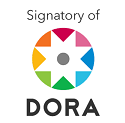Development of digital skills as a catalyst for critical thinking
Abstract
The main objective of this study was to examine how the integration of digital tools and competencies could enhance critical thinking and problem solving in the classroom. The method used was qualitative coupled with literature review and empirical analysis, allowing us to explore approaches and strategies for the effective integration of digital technologies in teaching. Interviews, observations and analysis of teaching experiences were used. Regarding the results, it was evidenced that the use of interactive digital tools and project-based learning increased students' creativity, active participation and analytical skills. The conclusions underlined that combining the development of digital skills with the promotion of critical thinking was essential to prepare students for the challenges of the knowledge society.
Downloads
References
Calderón, F. (2019). Impacto de las nuevas tecnologías en la masificación de la educación. Revista Scientific, 4(Ed. Esp.), 173-187. https://n9.cl/5agum
Carrascal, S., Ceballos, I., y Mejías, J. (2019). Retos de la educación como agente y paciente de los cambios socioculturales. Revista Prisma Social, (25), 424-438. https://n9.cl/bsh71
Castiñeira, N., Pérez, U., y Lorenzo, M. (2022). Aprender a crear contenido digital interactivo para enseñar ciencias. Magis. Revista Internacional de Investigación en Educación, 15, 1-24. https://n9.cl/4oido
Chiroque, S. (2024). Uso de tecnologías de información para mejorar la calidad de atención en municipalidades: Un estudio bibliométrico. Revista Científica de Sistemas e Informática, 4(1), e624. https://n9.cl/r6rc6
Choquehuanca, A., Kuzimoto, K., Muñoz, J., Requena, D, Trejo, R., Vasquez, J., Zenozain, E., y Marín, W. (2024). Emerging technologies in information systems project management. EAI Endorsed Scal Inf Syst, 11(4), 1-9. https://n9.cl/x5zh7
Facione, P. (1990). Critical thinking: A statement of expert consensus for purposes of educational assessment and instruction. Millbrae, CA: California AcademicPress. https://n9.cl/nicdzb
Jiménez, C., Castellanos, O., y Villa, E. (2011). La gestión de tecnologías emergentes en el ámbito universitario. TecnoLógicas, (26), 145-163. https://n9.cl/1sas3
López, R., Tobón, S., Veytia, M., y Juárez, L. (2021). La mediación didáctica socioformativa en el aula que favorece la inclusión educativa. Revista Fuentes, 23(1), 1-12. https://n9.cl/07cs0
Meirbekov, A., Maslova, I., y Gallyamova, Z. (2022). Digital education tools for critical thinking development. Thinking Skills and Creativity, 44, 101023. https://n9.cl/x0h3av
Minna, M., y Juhani, T. (2019). Smart technologies and corporate sustainability: The mediation effect of corporate sustainability strategy. Computers in Industry, 108, 178-185. https://n9.cl/5r7rv
Mishra, P., y Koehler, M. J. (2024). Technological Pedagogical Content Knowledge: A Framework for Teacher Knowledge. Teachers College Record, 118(6), 1-27. https://n9.cl/yx3fg
Paul, R., y Elder, L. (2014). Critical Thinking: Tools for Taking Charge of Your Learning and Your Life. Pearson Education. https://n9.cl/njdmgv
Pereda, R., y Duran, K. (2023). La competencia digital docente como un desafío en los entornos virtuales de aprendizaje. Revista Arbitrada Interdisciplinaria Koinonía, 8(2), 467-484. https://n9.cl/jf57r
Rahimi, A., y Mosalli, Z. (2024). The role of twenty-first century digital competence in shaping pre-service teacher language teachers’ twenty-first century digital skills: The Partial Least Square Modeling Approach (PLS-SEM). Journal of Computers in Education, 14(2), 1-19. https://n9.cl/8khf6k
Ricoy, M., y Sánchez, C. (2020). A systematic review of tablet use in primary education. Revista Española de Pedagogía, 78(276), 273-290. https://n9.cl/rdj6y
Rivero, C., y Beltrán, C. (2024). La inteligencia artificial en la educación del siglo XXI: avances, desafíos y oportunidades. Educación, 33(64), 5-7. https://n9.cl/1bhut
Rojas, A. (2014). Aportes de la sociología al estudio de la educación (Autores clásicos). Revista educación, 38(1), 33-58. https://n9.cl/9x5b
Tramallino, C., y Marize, A. (2024). Avances y discusiones sobre el uso de inteligencia artificial (IA) en educación. Educación, 33(64), 29-54. https://n9.cl/gt72z
Vélez, R., Muñoz, D., Leal, P., y Ruiz, A. (2024). Uso de Inteligencia Artificial en educación superior y sus implicancias éticas. Mapeo sistemático de literatura. Hachetetepé. Revista científica De Educación y Comunicación, 28, 1-17. https://n9.cl/zb26fe
Copyright (c) 2025 Nelida Gomez-Reyes

This work is licensed under a Creative Commons Attribution-NonCommercial-ShareAlike 4.0 International License.
LICENCIA DE CONTENIDO
Creative Commons
Atribución-NoComercial-CompartirIgual 4.0 Internacional (CC BY-NC-SA 4.0)
Política propuesta para revistas que ofrecen acceso abierto
Aquellos autores/as que tengan publicaciones con esta revista, aceptan los términos siguientes:
Usted es libre de:
Compartir — copiar y redistribuir el material en cualquier medio o formato
Adaptar — remezclar, transformar y construir a partir del material
La licenciante no puede revocar estas libertades en tanto usted siga los términos de la licencia
Bajo los siguientes términos:
Atribución — Usted debe dar crédito de manera adecuada, brindar un enlace a la licencia, e indicar si se han realizado cambios. Puede hacerlo en cualquier forma razonable, pero no de forma tal que sugiera que usted o su uso tienen el apoyo de la licenciante.
NoComercial — Usted no puede hacer uso del material con propósitos comerciales.
CompartirIgual — Si remezcla, transforma o crea a partir del material, debe distribuir su contribución bajo la lamisma licencia del original.
No hay restricciones adicionales — No puede aplicar términos legales ni medidas tecnológicas que restrinjan legalmente a otras a hacer cualquier uso permitido por la licencia.
DERECHOS DE AUTOR Y PERMISO
La revista permite que los autores tengan los derechos de autor sin restricciones.
La revista permite que los autores conserven los derechos de publicación sin restricciones; y garantizan a la revista el derecho de ser la primera publicación del trabajo.


















